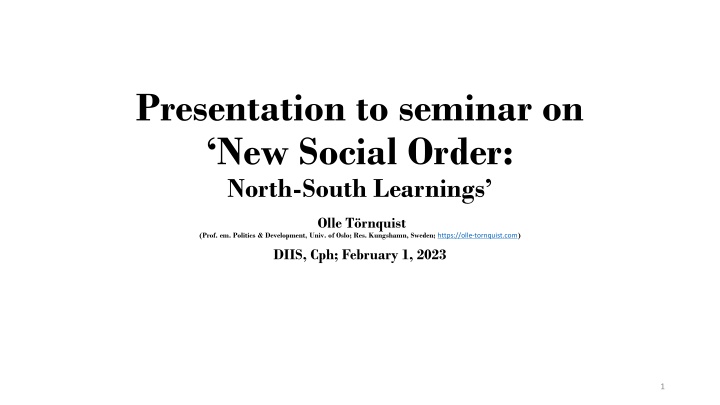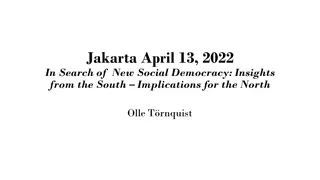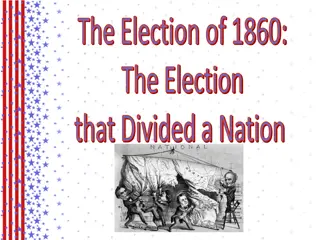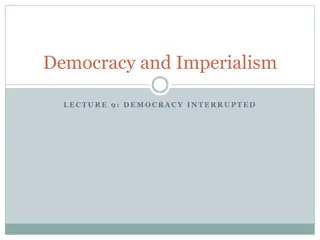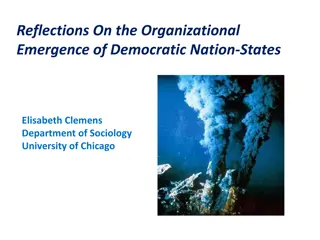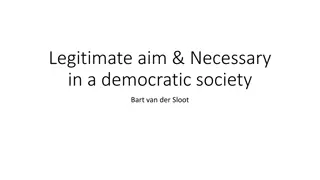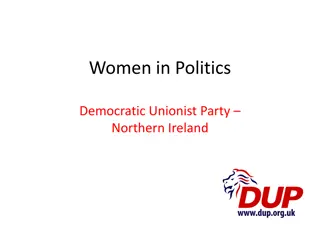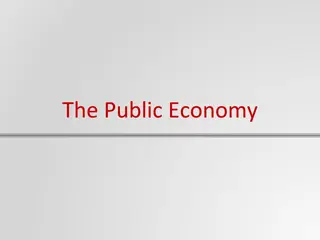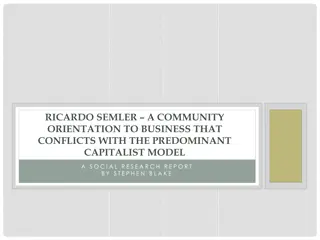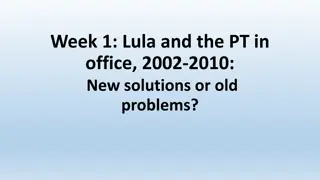Social Democratic Politics: Pillars and Strategies for Transformation
Social democratic politics is rooted in democratic collectivities and rights, aiming to reshape capitalism through reform, regulation, and transformative strategies. Olle Törnquist delves into the historical foundations and the need for comprehensive reforms to challenge the dominant logics of capitalism.
Download Presentation

Please find below an Image/Link to download the presentation.
The content on the website is provided AS IS for your information and personal use only. It may not be sold, licensed, or shared on other websites without obtaining consent from the author.If you encounter any issues during the download, it is possible that the publisher has removed the file from their server.
You are allowed to download the files provided on this website for personal or commercial use, subject to the condition that they are used lawfully. All files are the property of their respective owners.
The content on the website is provided AS IS for your information and personal use only. It may not be sold, licensed, or shared on other websites without obtaining consent from the author.
E N D
Presentation Transcript
Presentation to seminar on New Social Order: North-South Learnings Olle T rnquist (Prof. em. Politics & Development, Univ. of Oslo; Res. Kungshamn, Sweden; https://olle-tornquist.com) DIIS, Cph; February 1, 2023 1
Historical points of view We have much in common in this panel: In particular we seem to agree that the logics of capitalism are not dominating everything and that they may be altered gradually by democratic politics. So with your permission, Pelle, I would say that we are all social democratic oriented. Because Social Democracy in historical perspective is not the property of any particular parties, but a broad movement against the deterministic Marxist dogmas of inevitable crises of capitalism and the rise of socialism with a little help from enlightened revolutionaries. So we are social democratically oriented as long as we adhere to the kingpin that it takes politics to nourish democratic socialism not primarily with regard to ownership but in terms of (these days sustainable ) development based on as much social equity as possible and by way of democratic means means which then remain to be disputed. If parts of this essence tend to be abandoned (as they are now in at least my country by way of adjustment to nativist Swedish Democratic positions), then it s not very social democratic, even if that is the label of certain party. And if most of the essence is held on to even by actors calling themselves communists, as in Kerala, then they are anyway social democratic oriented. So what are then the basics of the social democratic politics that remain to be disputed. 2
To begin with, and once again historically, social democratic politics rests on four pillars Two capacity-pillars 1. Broad democratic popular-interest collectivities (e.g. unions, popular movements, action- and issue groups, and parties, all rooted in class- and related contradictions) 2. Democratic links between the state and a society of equal citizens based on residence (not nativism, not indirect democracy via ethnic or religious communities, but direct through citizens own parties and organisations, including via elections and participatory governance in public governance, where rules and regulations are applied by impartial administration and judiciary) Two policy-pillars 3. Social rights (+ rights in working life) and welfare as a basis for both well being and development (e.g. universal and impartial public reforms) Social pacts on ( sustainable ) economic development between prime producers, labour and capital (as we Scandinavians know it well from the early 30 s) 4. 3
Secondly, to get there, there are clusters of political strategies The first four strategies, I think Olin Wright has put well: 1. To win elections and dismantle elements of capitalism from top down (e.g. public natural resources, health, schools, communications) 2. To tame capitalism with various reforms and regulations (e.g. unemployment and welfare schemes, consumer rights, rules to save the climate ) 3. To fightit from outside the state (e.g. unions, action groups ) 4. To escape it with non-capitalist ideas & practices (e.g. self-help, self-management, cooperatives, alternative life-styles ) But somehow these four shall be combined. How and by whom? THE FIFTH HISTORICAL STRATGY IS MISSING And when that is missing, it opens for Blairist-like adjustment to neo-liberalism and attempts to tame a wolf rather than breeding it into a working dog; or it opens for not so democratic left-populist identity politics to unify people. 5. To transform capitalismwith a series of comprehensive reforms that step-by-step unify people, increase their capacity and change society. (E.g. step-wise increasing control over production, not only via ownership ( functional socialism- aiming for the result); or state-feminism : combining feminist actions with supportive step-by-step reforms and regulations [e.g. women's right to education, work Plus kindergartens, children benefits to mothers, not male heads of family, separate taxation ])
Moreover, there are three generations trying to raise the pillars by way of the strategies we talked of in different contexts 1. The generation shaped by the industrial revolution and onwards in the North 2. The anti-fascist & anti-racist, and especially the anti-colonial generation 3. The generation shaped by the third liberal wave of democracy from the 1970s until recently. For the 1st. generation, the pillars and strategies worked quite well, especially after WW 2. Initially the pillars and strategies also severed the 2nd generation well. (Two of the showcases for example, were in the largest countries in the world: the Indian state of Kerala which in 1957 even got the first free and fairly elected communist led government; and Indonesia that had the probably largest peaceful popular movement in the world with a reformist communist party that was expected to win the next national elections scheduled for 1959.) But then there were problems for the 2nd gen. in the South as well as for the 1st generation in the North. 5
FIRST THE PROBLEMS IN THE SOUTH may be summarised 1. No support for inclusive development & democracy, as in post WW II Europe. So uneven development & fragmented class structure & and no basis for welfare state & social growth pacts. 2. Most seriously, by the late 1950 s, both sides of the Cold War deprioritised democracy to fight US-imperialism++ or communism++. (The democratic showcase of Indonesia was worst, where the minority- leftists gave up democracy in favour of military supported politics of order , and the majority-leftists gave up to left-populist Guided Democracy with increasing military control and no chances to contain it because of very reduced democratic means. The result was total elimination and genocide. There were similar autocratisation all around the Global South, often called middle class coups . However, the other democratic showcase Kerala, was an exception that stood tall and proved the fundamental importance of saving democracy to move ahead.) 6
THEN THERE WERE PROBLEMS GLOBALLY & IN THE NORTH TOO End of Bretton Woods regulations of capital mobility 1971, rise of neo- liberalism, authoritarian E-Asian development states & OPEC s oil price hike. It was THIS, I would suggest, (less than ownership, Pelle ) that undermined northern Social Democracy, and its interest in anti-imperial nationalism a la Olof Palme to contain the cold war and big-states- and capital to thus be able to decide on and implement social democratic oriented politics in independent countries. So the rational for the North-South link was weakened. Palme, Brandt tried to globalise Social Democracy with NIEO & North South Partnership . But failed. So the field was open for global neo-liberalism. Gorbachev also failed to reform USSR, which imploded. Blairist social democrats opted instead for structural adjustment and a third way Social Democracy light , in one country, without partners in the South. Vulnerable sections of people were thus affected by deindustrialisation, precarious work conditions, weaker welfare insequrity + more inequalities. Leftist social democrats weak, also quite insular & short of viable alternatives. confusion and disillusion and the rise of right wing nationalist reaction and adjustment to it. Now even in Sweden, & worst, Putin s war. 7
Meanwhile, new opening with third wave of democracy (Background: Vietnam won 1975, successful anti-Portuguese colonialism Plus Spain, and Greece. AND negotiated transitions to democracy & fall of the wall 89) Window of opportunity in the Global South BUT: 1. Uneven neo-liberal development was divisive, fragmenting. Dearth of common class interests. Weak organisations. OK, some base for welfare (as Brazil-Lula, India- Sonia Gandhi), but did not affect neo-lib priorities. So there was insufficient base for social growth pacts. E.g. 80% of Indian labour are in informal sector, even outside agriculture. 2. Centre-leftists preferred pacted elitist democratisation confining activists and movements to civil society, and undermining the chance for popular organisations and their parties to get into politics with genuine representation. 3. Bottom up is not enough. It was too difficult for fragmented CSOs, social movements to build common agendas and organisations. (Kerala is only partial exception.) As far as I can see, this weakens Olin Wright s and Dragsted s arguments about localised progressive action and alternatives. The end results of these problems is that when the constrained liberal democratisation wasn t strong enough to deliver but created insecurity & mismanagement, and as the leftists didn t have a viable alternative, this was fertile ground for the expansion of a right wing nationalist, often populist reaction (Modi, Duterte, Bolsonaro ) anti-fascism Portugal 8
Possibilities to reinvent Social Democracy in the South? So according to my results, the main problem is how to foster unify in fragmentation against autocratisation and social insecurity. And I can t see that Olin-Wright and Dragsted address this. Left populism opening? Betting on unifying identities problems of democracy and strongmen. According to my results the more positive opportunity is to revitalise the fifth strategy about transformative politics and policies: e.g. to build broad alliances of progressive politicians and organisations in favour of equal civil rights, combined with series of comprehensive reforms for social security and welfare based sustainable development. Examples include the Indonesian public health reform 2010-12; or the Kerala struggle during Covid 19 when well functioning local governments and local popular organisations and CSOs enabled the state to launch and coordinate health and welfare measures and programmes which were impartial enough to attract more voters and generate landslide victories in elections and then be able to move ahead with plans for knowledge based development Ideally, such alliances for productive welfare may also facilitate New Green Growth Pacts, thus substituting for the unfortunate fact in the South that there is uneven development and weak unions and production-oriented employers organisations to negotiate such pacts. Major challenges: 1. Lack of series of viable transformative reform-proposals to rally behind. When activists win one, they tend to return home to fragmented normal activities. 2. Shortage of strategies to avoid that leftists turn prisoners of coalitions with powerful partners. One ex. is the Aquino III government in the Philippines. Need minimum programme coalitions and then freedom to act on other issues 3. Shortage of democratic citizen and partnership representation to contain populist or strong man leadership. Otherwise there will be fragmented transactions & dominance of divisive populist leaders, as i Indonesia 2013-> But this is what we Scandinavians could focus on supporting, based on our own historical experiences. 9
Challenges and possibilities in the North 1. Attempts to resume internationalism (Swe. 2012->) stumbled over the refugee crisis caused by insufficient support for the Arab Spring. This strengthened the right wing nationalists. 2. Now tendency to abandon social democratic principles and adjusting to the right wing nationalism. There must be an international alternative! I m looking forward to hear about yours, Pelle. 3. This is even more difficult because of the second adjustment to NATO s priorities 4. The Russian aggression must be fought, but it is part of the global right wing nationalist reaction. And that was nourished by the weakness of the third wave of democracy in the context of neoliberalism. NATO is not the way to fight that! (E.g. in Turkey, Kurdistan) 5. The focus must be to contain the global right wing nationalism with more social democratic oriented internationalism, based on non-alignment and alliances with likeminded movements in the South, towards transformative reforms for green welfare-based development by democratic means and international regulation of trade and capital. 6. I would argue that Pelle s (and Eric s) emphasis on bottom up may help some people in privileged contexts to escape the worst of the current tendencies. But while that is as attractive as democratic decentralisation and popular actions in Kerala, it is not a unifying and international enough roadmap to democratic socialism it must be scaled up within unifying comprehensive transformative reforms, as initiated by the Kerala state under the pandemic. 7. Maybe a first step for us in Scandinavia could be to initiate a social democratic- oriented world forum to discuss challenges and options in this regard. 10
